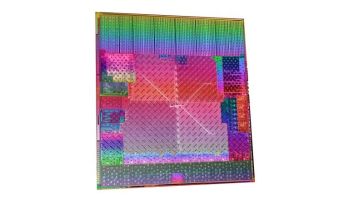

A day after rival Intel unveiled its line of “Sandy Bridge” second-generation Core-i Series processors, officials with Advanced Micro Devices rolled out the first of their Fusion chips.
AMD used the day before the Consumer Electronics Show 2011 opens its doors in Las Vegas to announce the first members of its Fusion family of accelerated processing units (APUs), which offer a host of capabilities – including discrete-level graphics capabilities, HD video technology and an I/O controller – on the same piece of silicon as the computing chip.
On January 3, Lenovo officials rolled out the ultraportable 11.6-inch ThinkPad X120e, a new laptop powered by AMD’s “Zacate” APU.
“We believe that AMD Fusion processors are, quite simply, the greatest advancement in processing since the introduction of the x86 architecture more than forty years ago,” Rick Bergman, senior vice president and general manager for AMD’s Products Group, said in a statement. “In one major step, we enable users to experience HD everywhere as well as personal supercomputing capabilities in notebooks that can deliver all-day battery life. It’s a new category, a new approach, and opens up exciting new experiences for consumers.”
AMD released four APUs, two within its E-Series (formerly Zacate) and two more within its C-Series (formerly codenamed “Ontario”). The E-Series – for mainstream notebooks, all-in-one systems and small-form-factor desktops – includes the E-240, which runs at 1.5GHz, and the E-350, at 1.6GHz. Both have a power envelope of 18 watts. The C-Series, for high-definition netbooks and other newer form factors, including tablets, includes the C-50, which runs at 1GHz, and the C-30, at 1.2GHz. Both have power envelopes of nine watts. AMD video clips showing off its Fusion efforts can be found here.
Both AMD and Intel – with its Sandy Bridge chips – are looking to give mainstream PC and laptop users a better video experience and greater compute capabilities while driving down power consumption and overall costs. The new processors from both companies are designed to improve such tasks as 3D rendering, HD video and gaming, given the parallel processing capabilities of the integrated graphics processing units (GPUs).
Click here for a look at efforts by Intel and AMD to bring together computing and graphics.
AMD’s path down this road started in 2006, with the acquisition of graphics technology maker ATI. Three years later, AMD officials merged the company’s CPU and graphics businesses as they geared up for the release of their Fusion products. The launch of the Fusion APUs was delayed several times, giving rival Intel time to bring out its own chips with integrated graphics on board.
For its part, Intel had been working on its down discrete graphics chip, dubbed “Larrabee,” but scrapped that early last year in favour of bringing higher-end graphics directly onto the die with new CPUs.
Bringing together the CPU and DirectX 11-capable GPU will enable greater computing capabilities in desktops and laptops, AMD officials said, adding that the technology will enable supercomputer-like performance for mainstream computing tasks.
AMD also offers its AllDay Power feature, which will give users 10 hours or more of battery life.
The “Llano” APU for mainstream notebooks and laptops, which will offer up to four processing cores as well as integrated graphics, will ship in the first half of the year, and AMD officials said they expect products with the APU by the middle of the year.
All Cybertrucks manufactured between November 2023 and February 2025 recalled over trim that can fall…
As Musk guts US federal agencies, SEC issues summons over Elon's failure to disclose ownership…
Moonshot project Taara spun out of Google, uses lasers and not satellites to provide internet…
Pebble creator launches two new PebbleOS-based smartwatches with 30-day battery life, e-ink screens after OS…
Amazon loses appeal in Luxembourg's administrative court over 746m euro GDPR fine related to use…
Nvidia, xAI to participate in project backed by BlackRock, Microsoft to invest $100bn in AI…